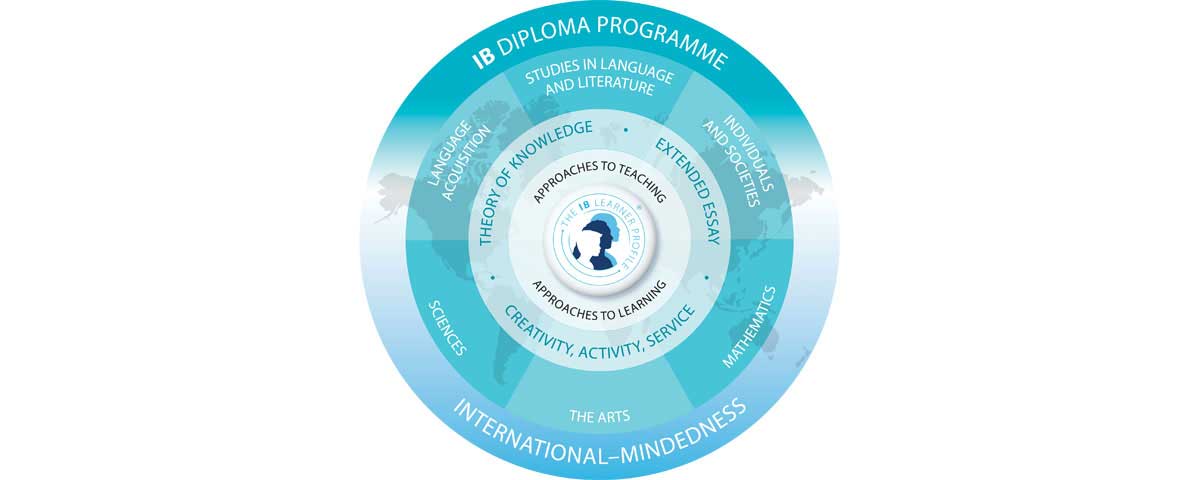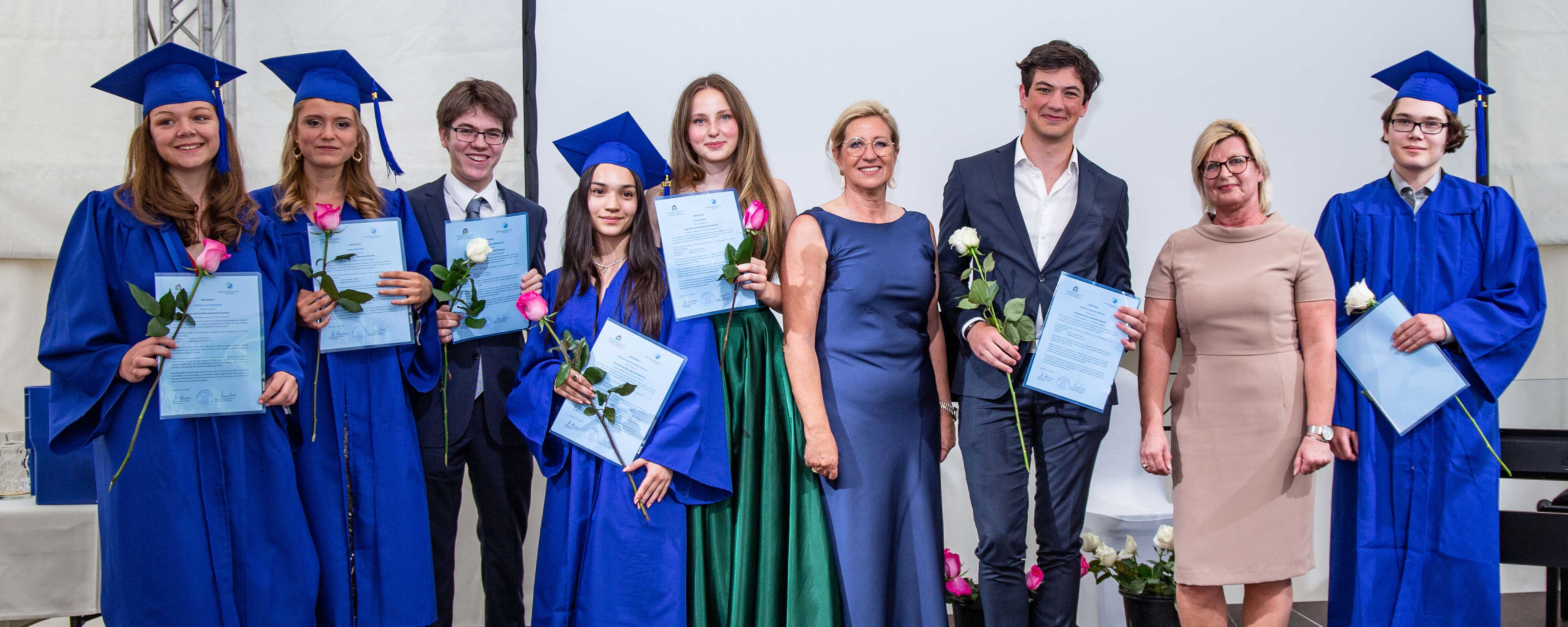What is the International Baccalaureate Programme?
The International Baccalaureate® (IB) was founded in Geneva, Switzerland in 1968 as a non-profit educational foundation. What started life as a single programme for internationally mobile students preparing for university has today grown into three programmes for students aged 3 to 19. As of June 2024, over 8,000 programmes were being offered across over 5,800 schools in over 160 countries. More informations
The International Baccalaureate (IB) is a global leader in international education—developing inquiring, knowledgeable, confident, and caring young people. Its three programmes empower students to take ownership in their own learning and help them develop future-ready skills to make a difference and thrive in a world that changes fast.
The Diploma Programme is the third of the programmes and a rigorous two year pre-university course that leads to the International Baccalaureate Diploma. Designed as a comprehensive two-year curriculum that allows students to fulfil the requirements of various national education systems, the Diploma Programme model is based on the pattern of no single country but incorporates the best elements of many. For more information on the International Baccalaureate Organisation, please go to www.ibo.org.

The Diploma Programme consists of three subjects studied at higher level (HL) and three subjects studied at standard level (SL). Since education is not restricted to formal classroom lessons, IB DP students also write an essay (Extended Essay - EE), they attend a course going beyond the limits of individual subjects (Theory of Knowledge - TOK), and participate in activities which enhance their creative potential, involves them in group action, and brings them into touch with people in need (Creativity, Activity, Service - CAS).
